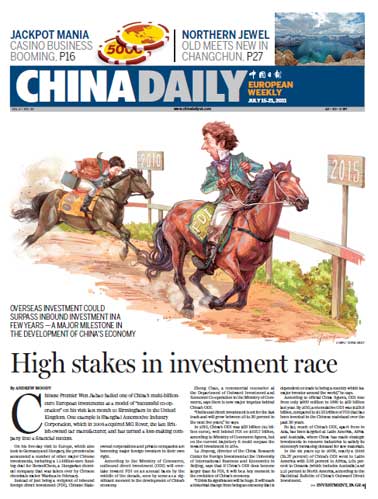Politics
UK needs new media watchdog: PM
Updated: 2011-07-16 07:49
(China Daily)
LONDON - The phone-hacking scandal of Rupert Murdoch's News International has shaken British journalism to its core and there are widespread calls for stepping up regulation of print media.
Senior politicians as high as British Prime Minister David Cameron and his team call for a possible end to newspapers' self-regulation, while some suggest "other ways of controlling Murdochs".
But the outcry is not just about journalism. "The system of collaboration between an over-mighty press and timorous politicians is being exposed," said Peter Oborne, The Daily Telegraph's chief political commentator.
In the latest development on Friday, News International Chief Executive Rebekah Brooks resigned amid mounting pressure.
Deputy Prime Minister Nick Clegg on Thursday called for a shakeup of the "ludicrous" press regulation in the wake of the phone-hacking scandal, including tougher laws against illegal use of personal data.
He said the Press Complaints Commission (PCC) had "failed as an effective watchdog" and that it was "time for fundamental reform".
Cameron also said the PCC had been "completely absent" and it "lacks public confidence". The watchdog should be replaced with a body independent of the press and politicians, he said.
Some members of parliament also joined the leadership to condemn the PCC.
Set up in 1991, the PCC is an independent self-regulatory body that handles complaints about the print and online editorial content of newspapers and magazines.
Long Yun, a professor at Beijing-based Communication University of China, said the effect of the scandal on the global media industry is "positive".
"We've been talking about self-discipline within the industry for years, but now I think this case clearly shows us that solely self-discipline is not enough. We should consider an independent third-party supervising organization," she said.
It's not the first time that a Murdoch media enterprise was reported to have illegally eavesdropped for exclusive news. The News of the World reportedly hacked Prince William's phone for information about his knee wounds in 2005.
This time it is accused of hacking the cell phones of ordinary people, a breach not only of "journalistic ethics, but also, more importantly, the law", said Li Liangrong, professor of journalism in Shanghai-based Fudan University.
The hacking scandal has damaged the reputation of news organizations in the UK, with 80 percent of British people finding the media no longer trustworthy, according to a ComRes poll for ITV News.
Major newspapers in Britain also voiced criticism about the phone hacking.
The Guardian, which is responsible for most of the investigative reporting on the story, has kept pressure up on the publication of News International in recent weeks. It ran front page stories accusing The Sun, another Murdoch newspaper, of illegally obtaining medical information on former Prime Minister Gordon Brown's son. The Guardian later withdrew its allegations and apologized for publishing the story.
Ma Liyao contributed to this story in Beijing.
E-paper

The perfect cut
Companies need to revamp, standardize to stave off quality challenges
Crowning achievement
Living happily ever after
Let there be smell
Specials

My China story
Foreign readers are invited to share your China stories.

90th anniversary of the CPC
The Party has been leading the country and people to prosperity.

Setting the pace in Turkey
China is building a 158-km high-speed railway in Turkey.
